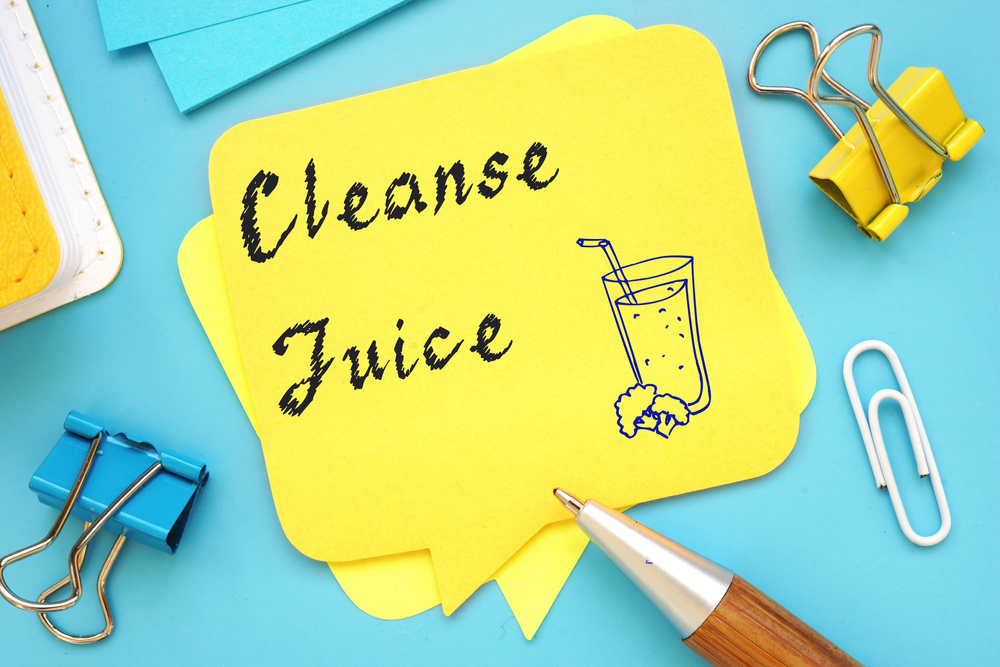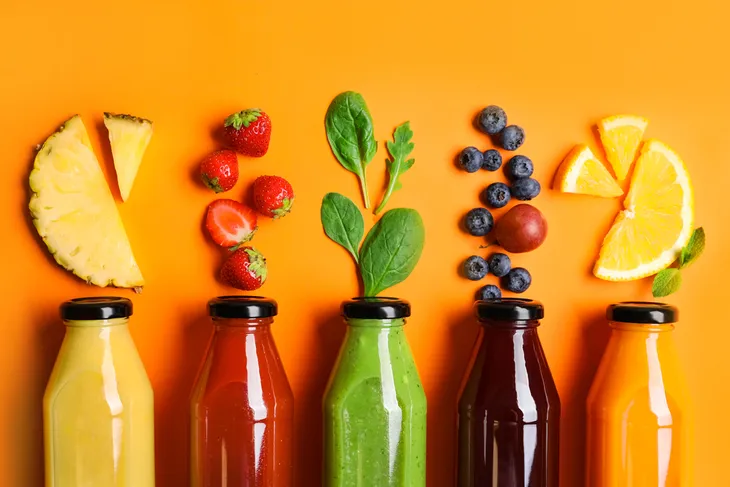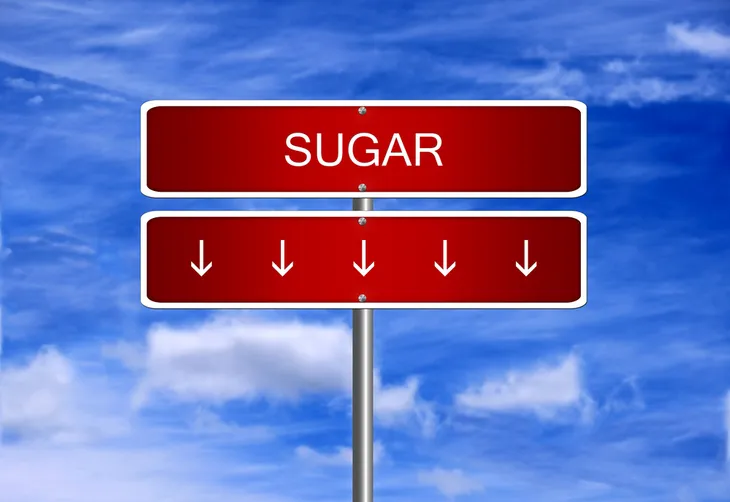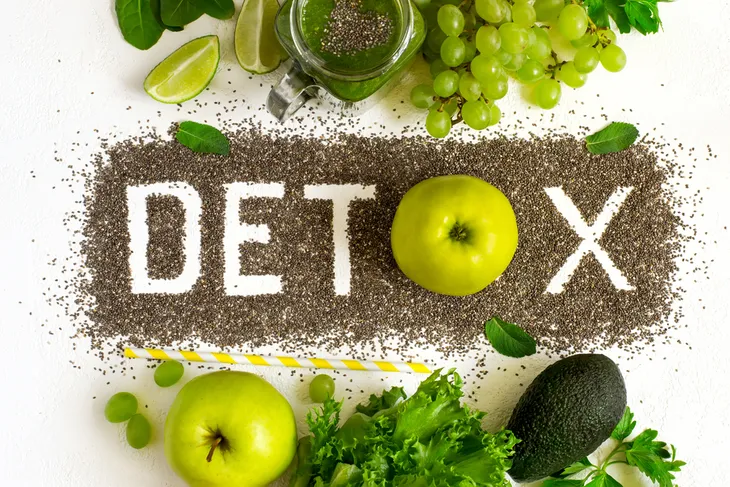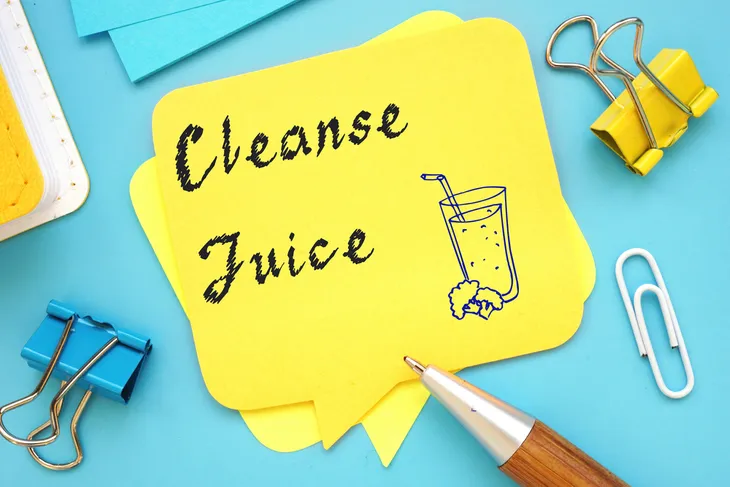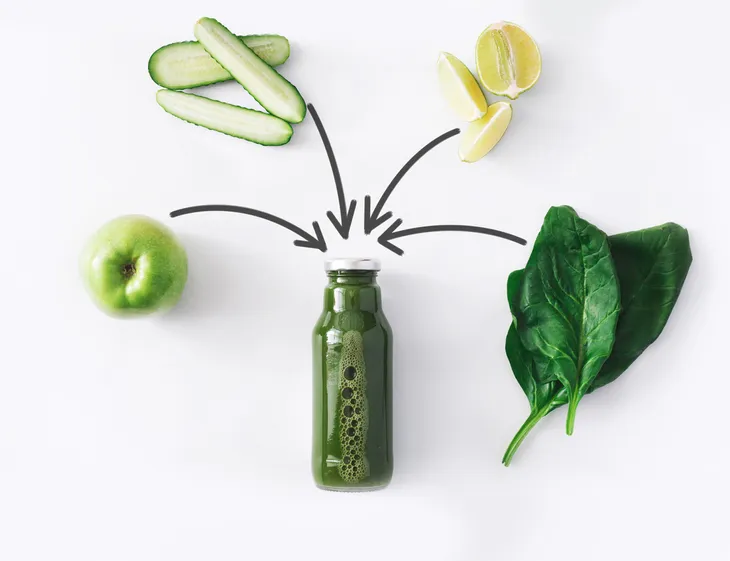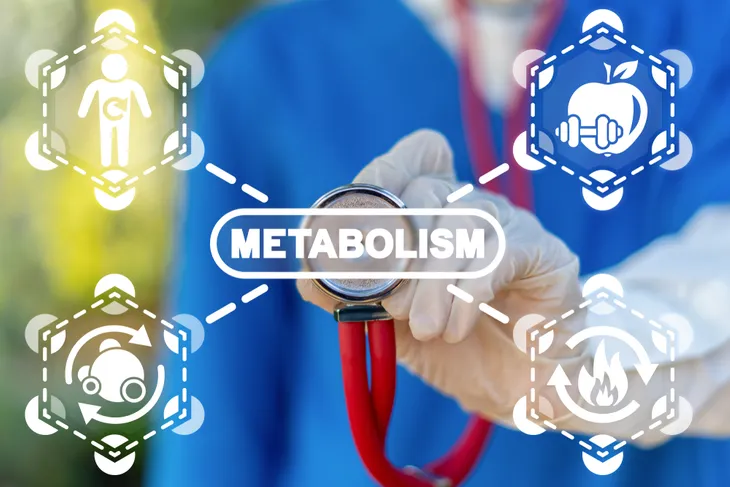Juice cleansing has maintained its spot as a popular diet for awhile now. It’s been claimed that juice cleanses can do many great things for your overall health, from weight loss and flushing out toxins to improving sleep and clearing your skin. But regardless of the continual popularity of this diet and the many people who have tried one (or several) out, there’s still a lot of controversy around whether or not juice cleanses are good for you.
There hasn’t been much research about the effects of them, yet the claims are fairly extreme. Like many other short fad diets, there are health professionals in support of and against juice cleansing. So read on for the pros and cons of juice cleansing to help you decide whether to give it a try or avoid it altogether…
Pro: Short Cleanse, Better Results
Many experts believe that short juice cleanses lasting only a few days are good for you. Cleanses that last longer than this can be dangerous because they cut out so many food groups, often leading to deficiencies and a severe lack of energy – so the shorter it is, the better. A short cleanse could give your body the boost it needs without putting you at risk of being overly deficient in things like protein or fiber.
On a 3 day cleanse, you’ll give your body a break from processing foods that aren’t good for you. You’ll drop some weight because your body doesn’t need to retain water to process solid foods. It’s important to note that unless you eat fairly healthy foods regularly, you’ll gain back the weight you drop from a juice cleanse. So the best result you’ll get from a cleanse is a boost—you’re going to feel lighter and possibly cleaned out. Your system will get a fresh start, and the feeling can really help with maintaining a healthy diet once the cleanse is over.
Con: Confusing Your Body with Excessive Sugars
There are many juice cleanses out there that could benefit your health, but there are still many unhealthy ones that can confuse your body and have some adverse effects—too much sugar. And even the good ones can cause severe imbalances if they’re longer than a few days. Why? The shock to your system comes from the amount of simple sugars you ingest while on the cleanse. If you’re a fairly healthy eater or follow a low-carb, low-sugar diet, the sugars from the juice can be hard on your body because it isn’t used to it.
Some people may even feel faint or dizzy, and become hypoglycemic. It can be quite dangerous for people with certain medical conditions, like kidney problems, diabetes, and nutrient or vitamin deficiencies. Within a day of being on a juice cleanse, your body will start a cycle of causing your insulin to jump drastically, followed by a noticeable crash. This high and low routine can then mess up the rest of your system, including where you get your energy from.
Pro: Help Your Body Detox
You’ve probably heard juice cleanses referred to as a form of detox, specifically how it can flush toxins from your body, giving your liver a rest through avoiding things that are hard to process. There’s a bit of controversy about whether or not you need a juice cleanse to help your body detoxify foods when your liver is there to do the job already—and the fruits and vegetables you eat when maintaining a healthy, balanced diet already assist your body with flushing toxins.
While this debate makes you wonder if a juice cleanse actually detoxifies your body, it’s true that your diet and lifestyle can put stress on your liver and make it difficult to naturally perform this task. Since your liver detoxifies foods before entering your system, it can struggle when your diet is full of processed foods and regular alcohol consumption. So there is merit to the theory that juice cleanses can help you detox if you aren’t already eating fruits and veggies regularly. The flush to your system may be just what you need to eat healthy in the future.
Con: Potential Serious Deficiencies
Juice cleanses are usually full of fruits and vegetables that provide your body with a hefty dose of many vitamins and nutrients. But what many don’t consider is the rest of the vital compounds your body needs not just to live, but to thrive. Juice cleanses typically drastically reduce the amount of protein and fiber you get in your diet, both of which are important for good health. When you do a cleanse that lasts more than a few days, you’re going to feel the loss—and it’s not going to feel good.
When your body doesn’t get what it needs, its defense mechanism kicks in and reacts in several from the change. It can cause you to burn off muscle instead of fat because you don’t get enough calories from the cleanse. There’s also the issue that your body can’t properly absorb some of the nutrients from the juice because it requires a certain amount of fat to do so. This is why many experts don’t believe you’ll benefit at all from a cleanse since your whole system can get out of whack.
Pro: Better Emotional Health
This pro isn’t obvious to some because it depends on your reasoning for doing a juice cleanse. Not everyone is going to benefit emotionally from a cleanse, unless the reason you’re doing it is to improve your overall health and outlook on your eating habits. Many people try out juice cleanses because they want to address and change what they eat, and will benefit from better emotional health because of it. Juice cleanses involve a lot of raw, healthy foods and can be just what you need to stay motivated to maintain a healthy diet.
While the cleanse itself works through your body physically, the process of the flush can help clear your mind and bring balance to your emotional health. Recognizing the importance of fresh produce, reducing or completely removing processed foods from your diet, and being more aware of what you put in your body should be the ultimate health goal. So if you’re doing a cleanse or plan to sometime in the future, look at the bigger picture and strive for better health all around.
Con: A Quick Fix
One of the worst reasons you can do a juice cleanse is as a quick fix to address poor eating habits or to lose weight quickly. This isn’t limited to juice cleanses—any time you jump on a fad diet for fast results, there’s a good chance the weight lost and any benefits will be short-lived. It simply isn’t healthy to drop a lot of weight over a short period of time, especially when it’s from not giving your body the food it needs to thrive. You won’t see any long-term benefits, and often the juice cleanses that are best for you won’t cause you to drop much weight at all anyway.
Consider your lifestyle and poor health choices you make. If you aren’t thinking about these things, using a juice cleanse for a quick fix is useless and won’t make you healthier. A cleanse isn’t the right approach if you don’t change your eating habits by eating healthier all the time. Everyone indulges now and then, but a special diet like this isn’t the right answer if you’re not doing it for improved health in the long-term.
Pro: Boost Energy and Rehydrate
The typical juice cleanse lasts 3 to 7 days. As previously mentioned, many experts believe the shorter cleanses are better. But regardless of what the right or wrong length of time is, juice cleanses can be a big energy booster and help you rehydrate your body. Too many people don’t drink enough fluids, causing your body to become dehydrated. A cleanse can effectively address this problem, while also improving your energy level.
In general, juice cleanses make you think about what you eat and reassess your eating habits. Something often not mentioned is how hard it is to do a cleanse, especially that first day. You crave food and think about it all the time when on a cleanse. Doing so makes you really think about what you put in your body. The boost from this short diet can give you the motivation you need to stick to a healthy diet—or start eating healthy once the cleanse is over. Part of the boost is from finally giving your body the fluid it needs, giving you many benefits like flushing toxins, improving joint and muscle function, and better cardiovascular health.
Con: Working Out Can Be Tough—and Dangerous
Doing a juice cleanse should be really thought out and if possible, speak with a dietician if you aren’t confident you can do it safely. Why? Juice cleanses are often thought of as just another type of diet, without recognizing the impact it will have on things like exercising. It’s more of a fast, so regular strenuous exercise while on a cleanse isn’t a good idea. The only time it’s safe for intense exercise when on a cleanse is when it includes protein—and enough of it—something your body absolutely needs for rigorous exercise.
Juice cleanses that don’t include protein won’t give you enough energy to work out, which is dangerous. Your body needs extra calories in order to safely exercise, and juice cleanses don’t typically meet this need. On top of the lack of energy and strength to exercise, the lack of substance your body needs will cause it to break down muscle mass and lower your body’s ability to heal. Again, making it unsafe. Know what you’re getting into and avoid exercising if there isn’t the protein or calories to do so safely.
Pro: Antioxidant Boost
One scenario you might benefit from a juice cleanse is when you aren’t currently making healthy choices, especially when it comes to food. Some people greatly benefit from a short-term, drastic change to their diet in order to begin living a healthy lifestyle. It’s kind of similar to boot camp—many people need someone to push them hard and to their limits in order to succeed at being healthy. Juice cleanses are a shock to your system and your emotional well-being, and can kickstart your system by providing a serious boost in antioxidants.
Those who don’t eat enough fruits or vegetables aren’t getting much in the way of antioxidants. By following a juice cleanse for a few days, you’ll consume a lot of antioxidants and you’ll feel the difference these vitamins and nutrients have on your system. Because of this, juice cleanses can be the first step on the road to healthy eating, and give you perspective on the importance of eating fruits and vegetables daily. The antioxidants are good for you and may be just the push you need to eat better.
Con: It Does Not Reset Your Metabolism
This con is more of a misconception but a big one at that. Many juice cleanse manufacturers claim they have the ability to increase and reset your metabolism, ultimately resulting in weight loss. But this claim is far from scientifically proven, and in fact may actually slow your metabolism. In cases where the calories are so few, your body can begin to burn muscle instead of fat. Most health experts agree that your metabolism doesn’t increase from eating juiced fruits and vegetables. And since these cleanses are like a crash diet, your body might enter starvation mode and lower your metabolism.
Instead, a variety of lifestyle habits like eating a healthy, balanced diet, staying hydrated, and exercising regularly are a few of the main ways to boost and keep your metabolism up. The higher your metabolism, the faster your body will burn calories and ultimately result in faster weight loss. Juice cleanses don’t fit anywhere in the list of ways to really boost your metabolism, so if you’re looking to do that you should implement other more effective dietary and lifestyle changes.
